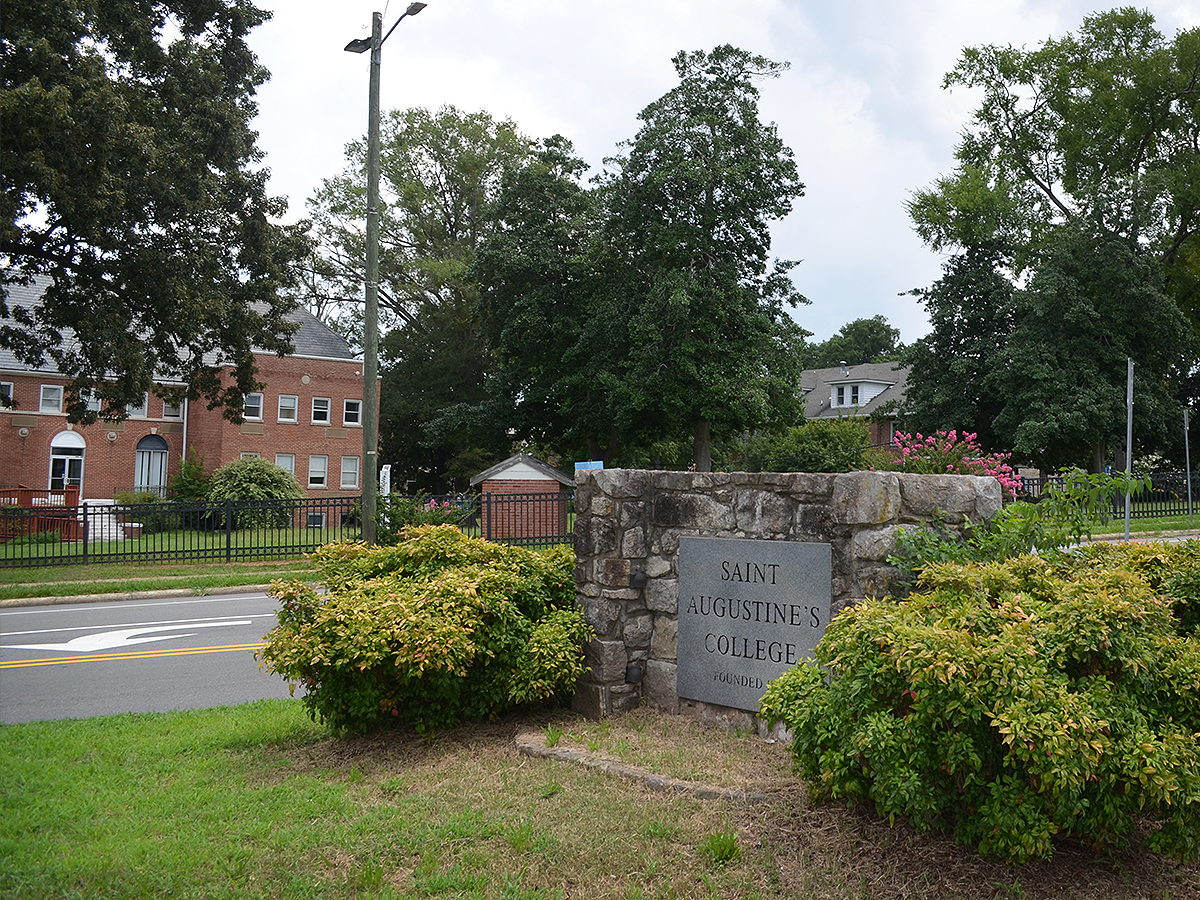Saint Augustine’s University has lost accreditation from the Southern Association of Colleges and Schools Commission on Colleges (SACSCOC) following a binding arbitration process, an outcome that feels almost inevitable after years of instability and internal discord at the Raleigh HBCU.
For the past several years, SAU has been plagued by declining enrollment, snowballing debts totaling in the tens of millions of dollars, and calls from alumni and former trustees to replace its top leaders. Last year, INDY and The Assembly reported that the NC attorney general’s office is investigating the university over allegations related to its board of trustees. The current board chair, Brian Boulware, recently admitted to a decade’s worth of alleged financial mismanagement at the school, including alleged misuse of federal funds. On top of all of its preexisting issues, loss of accreditation cuts off SAU’s access to federal financial aid and makes its degrees almost worthless to prospective students.
Despite the evidence to the contrary, SAU’s leaders claimed in a press release on Monday that they expect to regain accreditation and recover financially. The university plans to file an injunction to prevent SACSCOC’s decision from taking effect. It estimates that this litigation will cost $1 million, including a $350,000 retainer fee, for which it will need to fundraise. The press release did not explain the university’s supposed grounds for the injunction, and a spokesperson did not immediately return a request for comment.
Although SAU has been placed on probation and lost accreditation before, it has always had it restored; this time is different and more permanent. It’s the first time SACSCOC has revoked a school’s accreditation after going through the “final and binding” arbitration process, which it introduced in 2020. The accreditor did not immediately respond to a request for comment.
“I’m not surprised that SAU’s appeal was unsuccessful given that financial metrics in accreditation standards tend to be pretty clear-cut,” Robert Kelchen, a higher education researcher based at the University of Tennessee, Knoxville, wrote in an email to INDY. “Lawsuits to regain accreditation are rarely successful for the same reason.”
Kelchen suspects that behind the scenes, SAU has been contemplating a switch from SACSCOC to the Transnational Association of Christian Colleges and Schools (TRACS) for some time. But TRACS requires its schools to demonstrate financial stability.
“If [SAU is] consistently losing money, then they are unlikely to meet the standards,” Kelchen wrote.
The university said in its Monday press release that it will open for virtual instruction in Fall 2025 “with course offerings available to traditional and adult learners, particularly in the Raleigh community.”
SAU graduated 25 students in May, and the school’s total enrollment is estimated to be very low. A university spokesperson recently declined to provide INDY with the latest enrollment figures or say how many new students applied this year. In the Monday press release, university president Marcus Burgess wrote that, “Our priority now is to ensure every student can complete their education at SAU with an accredited degree in hand, and we have a clear plan to make that happen.”
The press release hinted that SAU has secured “a major partnership that will leverage SAU’s valuable real estate assets through a long-term lease,” which could “clear SAU’s existing debts and fund new investments.” The university claims to be finalizing the agreement, with more details to come soon. It has made similar promises before, teasing lucrative development deals with Carter in 2023 and 50 Plus 1 Sports in 2024, but both agreements fell apart before they could be finalized.
Benjamin Johnson is an SAU alumnus and a leader of Save SAU, the alumni organization that sued the university in 2024 in an attempt to replace the board of trustees. He’s not surprised by SACSCOC’s decision and says SAU’s only path forward is under new leadership.
“We can bring funding opportunities to the school if [the current and former board chairs] Boulware and [James] Perry are removed,” Johnson says.
“Personally, I don’t think that the alumni members will respond positively to raising money for litigation,” he adds. “If things were done correctly 18 months ago, you wouldn’t have to ask alumni to raise money for litigation.”



